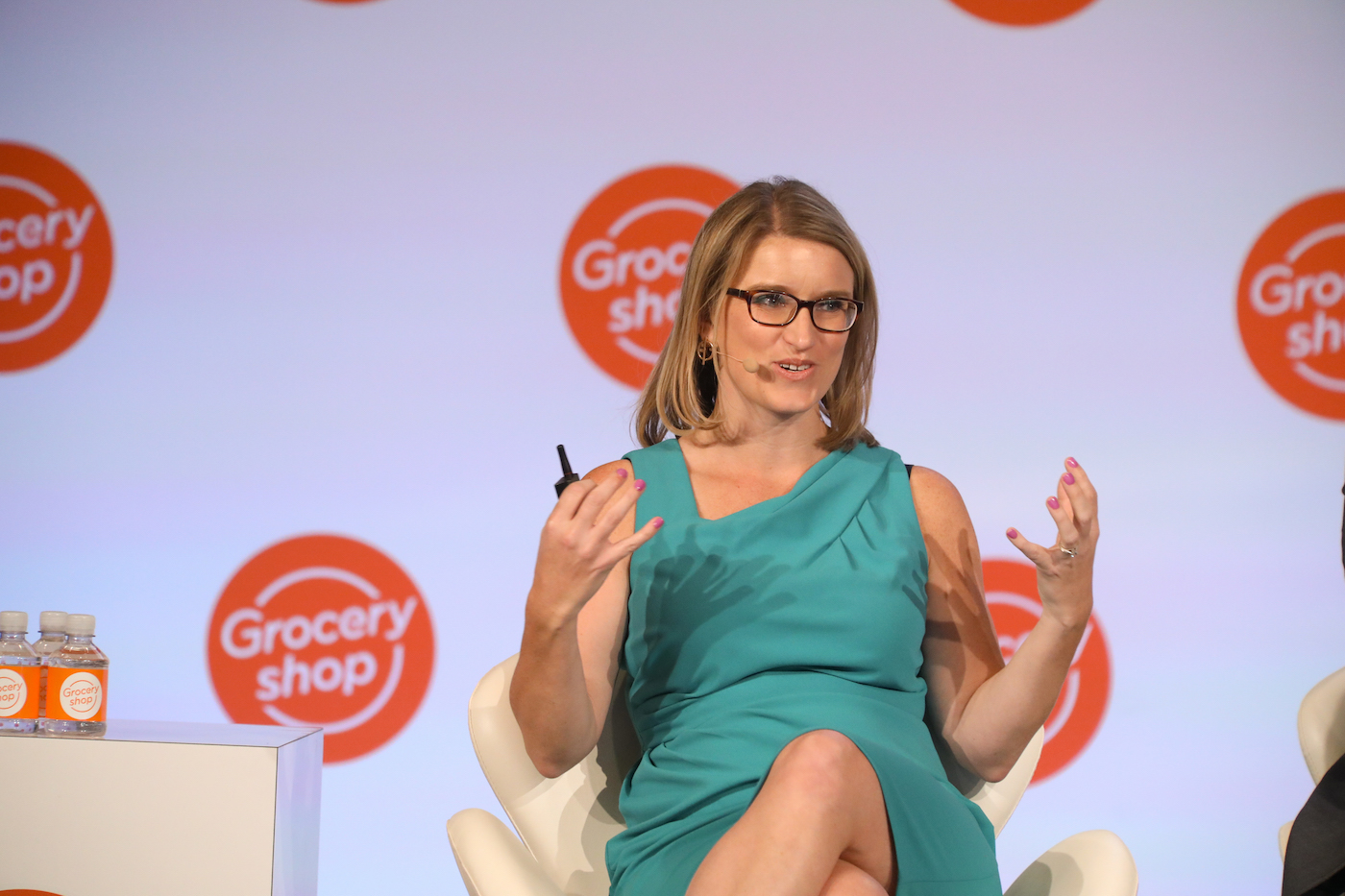Data is absolutely essential for the success of any business — especially the retail and manufacturing sectors. Not only is broad market intelligence key to the health of the space as a whole, but granularity down to the customer and product-performance levels is vital for brands that wish to stay competitive.
Data helps companies recognize and evaluate the staying power of emerging local and industry-wide trends. For example, only 12 percent of Americans favored legalization in 1969 according to polling-and-analytics firm Gallup. In 2021, Pew Research Center found 91 percent of Americans now support some form of legalization, with 60 percent endorsing a complete end to prohibition and another 31 percent backing medical-only legislation. According to BDSA, 50 percent of Americans now consume cannabis in some form. The numbers could indicate looming success for some of the sixty active federal bills the National Cannabis Industry Association is tracking. Many of them would open up commerce — or at least end some of the more onerous restrictions. Decision-makers who haven’t already begun laying plans for an expanded market should begin doing so.
Flowhub data indicates 50 percent of cannabis users have increased their consumption since the pandemic began, indicating retailers may want to increase their stock of the products most popular with their customers. Nationally, there are 4 million to choose from (Pistil Data). Retailers also may want to adjust their product ratios, as data indicate pre-roll sales are rising in Canada (HiFyre IQ) but falling in the United States (High Yield Insights).
In addition, stores probably want to ensure what’s on their shelves is attractive, since 67 percent of beverage consumers say high-end packaging sells the product (ISA).
Demographic shifts cause ripples across all sectors. Generation Z’s market share is increasing (Brightfield), and consumers in that age group prefer pre-rolls, edibles, and beverages (Headset). And there’s a large gender disparity in shopping preferences: 85 percent of dispensary visitors are men, while 85 percent of ecommerce shoppers are women (New Frontier Data).
Data transforms supposition into fact, allowing businesses across the spectrum to define market strategies with confidence and plan ahead more effectively. Each datapoint provides the industry with invaluable perspective.
Thanks to data collectors and analysts, brands and entrepreneurs are able to stay ahead of setbacks, anticipate consumers’ needs, and move the cannabis industry that much closer to operating like any other consumer-packaged-goods industry.
Here we highlight some of the top resources offering industry-specific insight. From consumer trends and regional patterns to shifts in product popularity and industry-adjacent influences, having concrete data helps companies remain relevant, engaging, and aligned with their target audience.
BDSA
Datapoint: The percentage of the population consuming cannabis has increased in all U.S. markets, nearing 50 percent of U.S. adults.
Founded in 2015, BDSA uses its data and analytics suite to support retailers, manufacturers, brands, wholesalers, and investors throughout the industry. At a time when market data was slim, the firm’s initial purpose was to bolster venture-capital fund CanopyBoulder’s investment strategy. “The biggest change in cannabis data since 2015 is its granularity and depth,” said CEO Micah Tapman. “Back then, people were trying to figure out fundamental business questions like how much revenue a dispensary would see in a month or how many different brands a retailer should carry. Today, we’ve evolved to more nuanced discussions around running discounts and promotions, factoring in minor cannabinoid products, and more.”

Brightfield Group
Datapoint: In 2021, 51 percent of cannabis consumers were female, primarily driven by an increase in the number of women in Generation Z who partake.
Founded by Patrick Hayden in 2015, Brightfield Group offers nuanced and fast-paced consumer data from a variety of sources including focus groups and social media, which are increasingly relevant resources. “We use social media to understand cannabis consumers,” said Managing Director Bethany Gomez. “Our surveys are integrated directly with social, and respondents can opt in to share their social handles and footprints with us so we can capture their content in their own words and use natural language-processing tools to pull out rich personality profiles. This helps us understand where their interests lie, which provides an end-to-end level of insight for our clients.”

Flowhub
Datapoint: Eighteen percent of all dispensary transactions include a discount, but medical discounts are 37-percent higher on average than discounts for adult-use sales.
Flowhub’s technology platform powers more than 1,000 dispensaries in the United States, facilitating more than $3 billion in annual sales. But the platform’s point-of-sale, inventory-management, and point-of-banking components, along with more than thirty ancillary integrations, provide more than just compliance with regulations: Taken together, the system produces remarkably detailed insights about consumer behavior and preferences not only at a nationwide aggregate level but also at the level of individual stores. “We help smooth out operations, from importing inventory information into the system to making sure data is organized,” said Vice President of Marketing Anne Fleshman. She added data-driven decisions take the guesswork out of retail.
Fyllo
Datapoint: Marketing is heating up in 2022, with 4/20 ad spending nearly triple the previous year’s dollar volume.
Chad Bronstein founded Fyllo in 2019 as a way to accelerate the industry’s economic growth. The Fyllo platform places a major emphasis on compliance, offering omnichannel marketing, research and data, as well as loyalty programs. “We’re powered by a regulatory database, along with the world’s largest data marketplace of cannabis and CBD purchase data,” Bronstein said. He also said the company’s primary objective is to ease industry stakeholders’ transition into the mainstream consumer-packaged-goods space.
GreenWave Advisors
Datapoint: Illicit plant confiscations went up significantly in 2021, probably due to pandemic-related financial restraints forcing consumers to turn to cheaper sources for cannabis.
Matt Karnes founded GreenWave Advisors in 2014 to provide support to the financial sector of the industry, which he said felt like the wild west at the time. With a background in finance, accounting, and equity research, Karnes and his team offer independent, institutional-quality research and analysis that “connects the dots and reads between the lines” for investors and startups. “As the industry continues to grow and evolve, you constantly have to pivot and reprioritize what makes the most sense,” he said. “It’s very fluid when it comes to a state implementing their legal m`arket. It’s a moving target.”
Headset
Datapoint: On 4/20 in 2021 and 2022, the Gen Z age group had by far the largest relative sales increase when compared to the average for the previous four same weekdays—a 138-percent increase in total transaction volume.
Headset, founded by Leafly cofounders Cy Scott, Brian Wansolich, and Scott Vickers, offers an ecosystem of data-driven products to retailers, manufacturers, growers, and ancillary businesses via partnerships with point-of-sale systems. The company’s platform helps assess trends in real-time, facilitating inventory management, wholesale-price optimization, and demand planning. “We report in real-time, which is paramount in cannabis because things change so quickly,” Scott said. “Once we start providing market projections, retailers are able to see how that market is moving as it’s happening. The data we leverage is built on retail measurement coming directly from dispensaries and retailers.”
Hifyre IQ
Datapoint: During the first half of 2022, monthly growth for infused pre-rolls in Canada averaged 72 percent, compared to 3 percent for non-infused pre-rolls.
Based in Canada, Hifyre IQ supports the retail side of the industry with ecommerce, click-and-collect, in-store menus, and kiosk apps to boost sales and customer engagement. The company was founded in 2013, playing a significant role in Mettrum’s (now Spectrum Health) software and platform in the medical-only days. “Today, Hifyre IQ offers a variety of data-driven services to cannabis businesses throughout Canada, helping with traffic generation, search engine optimization, in-store toolsets and, of course, data analytics,” said President and Chief Innovation Officer Matthew Hollingshead. “We also have the benefit of creating company-owned IP addresses and full stewardship of our customers’ interactions with our store-level technology.”
High Yield Insights
Datapoint: Forty-five percent of daily consumers who smoke pre-rolls reduced their use of that form factor in favor of flower, possibly as a consequence of financial strain.
High Yield Insights is a strategic partner for consumer brands, providing data-driven insights that help explain market trends. President Mike Luce possessed more than twenty years of experience in major multinational market research when he founded the company in 2018. Luce said he was inspired to join a budding industry with an extraordinary need for data after his own life-changing experiences with medical cannabis. “We focus exclusively on consumer understanding. We’re specialists in that regard,” Luce said. “Right now, we’re working on data to help the market understand the recent product shift from flower to edibles.”
Hoodie Analytics
Datapoint: Cannabis beverage brands Magic Number and Tonic grew their market penetration by 11 percent and 20 percent, respectively, during the first quarter of 2022.
The industry’s need for data was exacerbated by the COVID-19 pandemic, when sales both soared and shifted from brick-and-mortar to ecommerce. “One interesting outcome from COVID-19 was the whole retail industry needed to move online in order to survive while still ensuring customers would have an amazing experience,” said Hoodie Analytics cofounder and President Kris Walker. “Today, we provide data that helps clients guide the actions different elements of their business need to take to make money. Our data helps retailers understand how products are merchandised, whether or not they should be put on promotion or price-changed, etc.”
ISA
Datapoint: Sixty-seven percent of beverage consumers consider high-end packaging and design important to their purchase decisions, compared to 36 percent of consumers overall.
ISA offers consumers real-time access to custom research solutions. The company’s offerings include qualitative division Q-insights, online survey division SoapBoxSample, and a new insight community platform called icanmakeitbetter. “Our perspective is that, while point-of-sale data is important and useful, there are a lot of things that happen before consumers make a purchase decision,” said Head of Cannabis Research Adriana Hemans. “How do they discover products? What is their attitude toward categories? How do they research? How do they interact with their budtenders? All of these inputs are part of the customer journey and need to be part of the conversation.”

National Cannabis Industry Association
Datapoint: When NCIA was founded in 2010, there was barely one piece of federal cannabis legislation. Now, more than sixty positive cannabis bills are circulating in Congress.
Founded in 2010, the NCIA is the oldest and largest trade association representing and lobbying for legal businesses nationwide. The organization offers news, resources, data, and education to consumers and operators in the industry with the goal of expansion and defense. “Our membership is composed of hundreds of forward-thinking businesses and tens of thousands of cannabis professionals from coast to coast,” said Director of Communications Bethany Moore. The organization has navigated through more than a decade of prohibition and today offers experience, data, and information to ensure operators have what they need to help define state laws and advance federal policy reforms.
New Frontier Data
Datapoint: Eighty-five percent of dispensary visitors are men and 15 percent are women. Ecommerce percentages are exactly opposite.
Giadha Aguirre De Carcer founded New Frontier Data in 2014 to identify, vet, and bring attention to market research in a then-emerging market. She launched the company after a client requested cannabis research and she couldn’t find anything in-depth. “The word I’ve been using a lot recently is ‘scale,’ which is how we always intend to examine data,” said CEO Gary Allen. “We look at things from a global perspective and then break figures down to consumers, then cannabis consumers. We want to make sure we’re contextualizing the largest statistically relevant data source to market so everyone understands the full picture of the industry at any given time.”
Pistil Data
Datapoint: There are nearly 4 million different cannabis products for sale in the United States today.
Pistil Data was formed to meet the industry’s demand for data and has gone on to advise thousands of retail buyers nationwide. When Chief Executive Officer Jeffrey Graham first joined the industry as a business intelligence expert, he identified a need for data that would create solutions based on hyper-local research. “In the early days, data tended to be too broad and general,” he said. “We discovered a need for very granular, locally specific information that could be served up to brands in a way everyone in the industry can benefit from.” Hyper-local data helps dispensaries stay in tune with their core demographic and community, which is imperative to success.
Prohibition Partners
Datapoint: The number of private, unlicensed medical products dispensed in England increased by 425 percent from 2020 to 2021.
Founded in 2017 with a vision to help create a worldwide legal industry promoting the abundant economic, societal and health benefits of the plant, Prohibition Partners provides specialist information, data analytics, and digital commerce solutions. The company maintains offices in London, Toronto, and Barcelona, Spain. “Our business-to-business user base leverages its platform, brands, and products to connect with the industry and improve business performance as it relates to other pillars,” said cofounder and CEO Stephen Murphy. “We’re also passionate about immersion and interaction, providing a series of conferences that connect leaders in the science, policy, and business spaces to help determine the direction cannabis is headed.”
Surfside
Datapoint: When dispensaries are near a state border, ecommerce conversion rates drop by almost 70 percent because consumers tend to look at the online menu and then drive across the border to purchase in person.
After examining other cannabis data companies, Surfside’s founders created an organization that focuses on consumers instead of macro market trends. The team works with dispensaries and brands nationwide, providing them with data that reveals a detailed picture of their specific customers. “This allows our clients to build advanced metrics, understand costs and customer acquisition, and understand which products are being purchased and why,” said cofounder Michael Blanche. Surfside’s goal is helping increase the lifetime value of existing customers.










[…] that help companies perform daily operations (point-of-sale systems, for example), as well as analytical tools that help inform business decisions and […]
[…] its advent, the legal cannabis industry has had to track data much more closely than other industries to stay on top of regulatory compliance. As tedious as it […]
[…] OpenAI’s generative pre-trained transformers (the GPT in ChatGPT) model to translate data into actionable insights for small businesses. He sees ML and LLMs as powerful tools in the hands of humans, not the source of our eventual […]